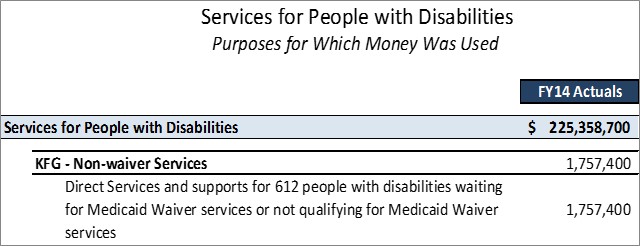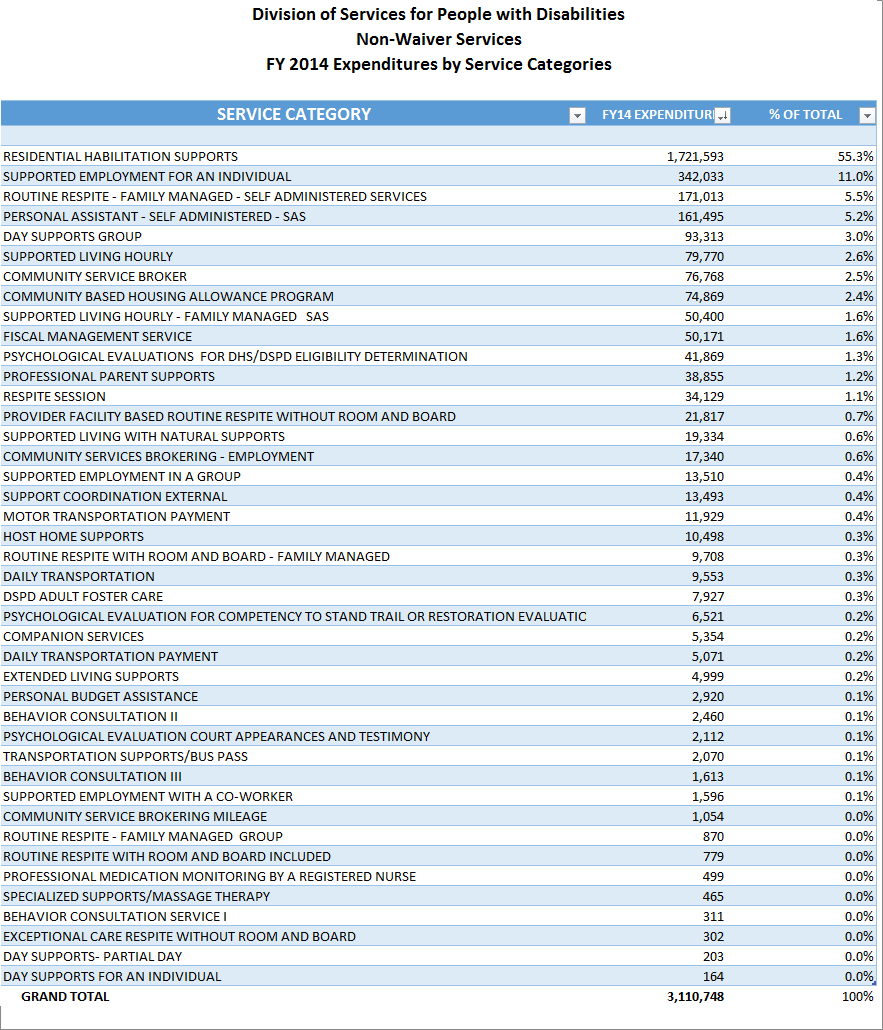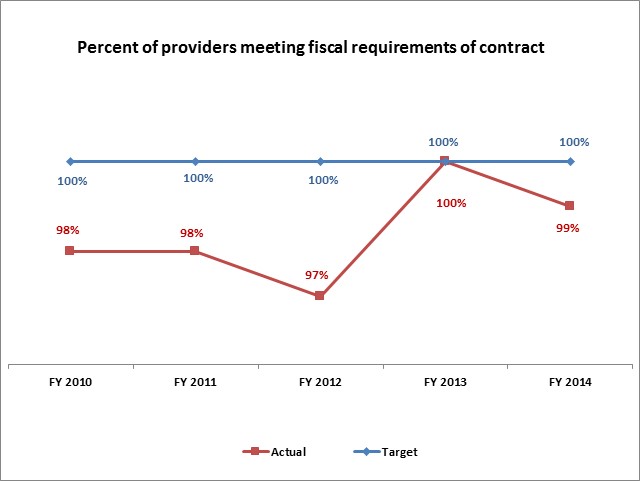Non-waiver Services includes services provided to individuals who are not eligible for any of the Medicaid waivers due to either income and asset issues or the nature of the disability. Non-waiver Services also includes non-Medicaid eligible services provided to individuals in the waiver program, such as psychological assessments used to determine eligibility, residential start-up costs, housing assistance, and special needs funding. These expenditures do not draw down matching Medicaid funds.
During the 2015 General Session, the Legislature appropriated for Fiscal Year 2016, $1,785,500 from all sources for Non-waiver Services. This is a 0 percent change from Fiscal Year 2015 revised estimated amounts from all sources. The total includes $451,400 from the General/Education Funds, a change of 0 percent from revised Fiscal Year 2015 estimates.
For the most recent completed fiscal year, the following information represents the purposes for which the money was used:


Non-waiver Services is considered a statewide program including all rural areas and is open to all residents of Utah with intellectual disabilities eligible for care. There is no statutory requirement for distribution of funds or allocation of slots by geographic region. The Division of Services for People with Disabilities (DSPD) "does not distribute funds based on location, but rather based on the unique needs of the individual receiving services. Persons are not brought into DSPD services based on location but rather the severity of their needs, and those with the most severe needs are brought into services first . . . DSPD serves Utahns in greatest need of services without consideration of their location."
Efforts to Limit Expenditures in this Service Category
There has been a concerted effort to qualify and move individuals from this state-funded-only program over to the Medicaid waiver program. Since 1999, over 515 individuals have moved from non-waiver to waiver (Medicaid) funding. In FY 2014, there were 112 people remaining in this program. Some individuals receiving services under this program would qualify for Medicaid but refuse to either apply for Medicaid or spend down their income and assets in order to qualify. These individuals have had their service funding reduced to a commensurate level that the state would provide under the waiver program. Individuals who do not meet the waiver level of care requirements must submit a Graduated Fee Assessment Form to the division.
COBI contains unaudited data as presented to the Legislature by state agencies at the time of publication. For audited financial data see the State of Utah's Comprehensive Annual Financial Reports.
